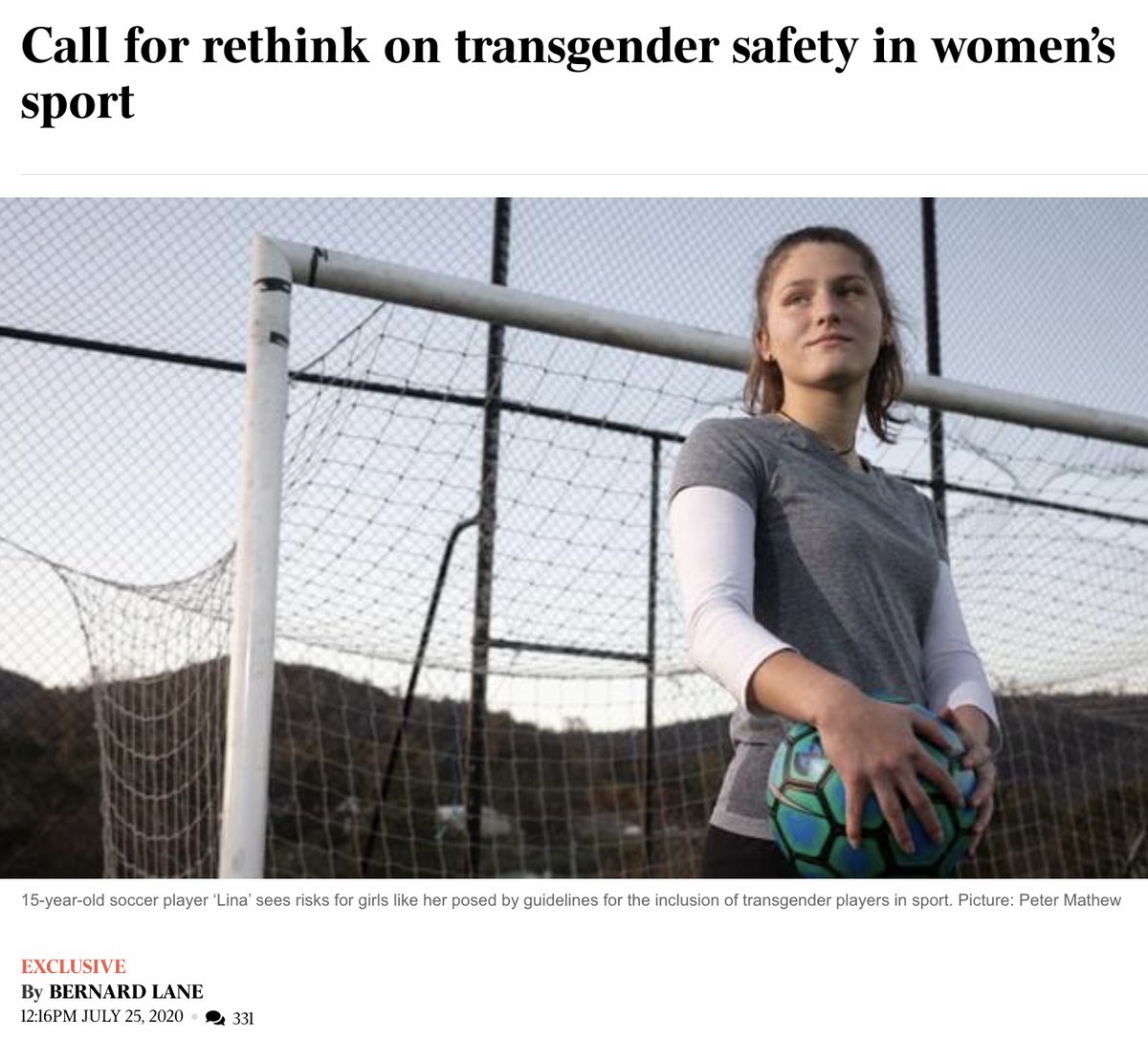
Why would Australia's prime minister express concern about youth gender medicine? #AusPol #AusVotes2022 #Health #GenderClinics
Schools, social media & the wider culture increasingly send impressionable kids the message they can "choose" to be a boy or a girl, or something in between. This adult theory -- with its post-modern denial of biological reality -- used to be confined to the fringes of higher ed.
Gender non-conforming kids, who might otherwise grow up to be gay/bisexual, are now exposed to the idea that unease in their bodies, not fitting in with peers, may mean they are the opposite sex. Autistic kids may be especially vulnerable to this "black & white" thinking.
The social space that used to leave room for more feminine boys & more masculine girls seems to have shrunk. Nobody used to deny that a tomboy is still a girl & that a boy with a more feminine gender expression, who may grow up to be gay, is still a boy.
It's become more common for parents & teachers to "socially transition" kids before puberty, going along with a new opposite-sex identity, a new name, hair & clothes, maybe a new school. This is promoted as a low-risk, "be kind" option.
But it is a form of gender treatment -- a psychological & social intervention by adults with the risk of locking-in an opposite-sex identity. In the past, before early social transition, most kids with early-onset gender distress grew out of it & many emerged as gay/lesbian.
Early social transition means a gender non-conforming kid is more likely to go down the medical path, according to psychologist Ken Zucker, a world expert on youth gender dysphoria.
The first step on that medical path is puberty blockers, promoted as a reversible "pause button" to relieve the distress of the "wrong puberty" & give these kids time to decide whether they want to take the next step to irreversible opposite-sex hormones.
But there is a recent trend internationally for some gender clinics to be more open about the risks & unknowns of puberty blockers. What data we have suggests that the vast majority of kids who start on blockers will go on to opposite-sex hormones. Are blockers truly reversible?
If kids start puberty blockers early in puberty (Tanner stage 2, around 9 years of age) & go on to opposite-sex hormones, then sterilisation & sexual dysfunction (eg inability to orgasm) are thought to be among the risks. It's a grey area because there is no good long-term data.
Sterility & impaired sexual pleasure may make adult life very difficult for these kids -- and lead to serious regret if they come to decide that the trans identity & medical interventions were a harmful mistake.
A teen who starts on hormone drugs is expected to be on them for life. Contrast this with the healthy bodies of young gay/bisexuals who grew out of gender dysphoria. That was in the era before the rapid spread of gender clinics & today's spike in female, teen-onset dysphoria.
Many of today's patients want mastectomy. This "top surgery" is glamourised on social media. Australia is among the countries where under-18s get trans mastectomy. Family Court records prove this. How often? No good data & those who have the records don't want transparency.
Activists, not just in Australia, send mixed messages. In defensive mode, they insist that under-18 surgery doesn't happen, or very rarely. In their less public lobbying mode, they claim mastectomy is "lifesaving" for many trans youths. The evidence for this claim is weak.
When activists campaigned against old laws requiring surgery before a change to an official record of birth sex, one of their arguments was that they should not have to pay the price of mutilation & sterilisation for a new identity.
Surveys show that trans adults are much more likely than trans teens to say that they would like to have their own kids.
Media reporting usually treats gender medicine as a culture war between progressives & bigots. It doesn't get covered as a factual issue, nor as a potential international medical scandal. Many journos limit themselves to identity politics slogans.
Journos appear not to understand gender clinic terminology, even when correcting others. "Gender reassignment/confirmation surgery" includes mastectomy, not only genito-urinary surgery. Sterilisation appears a possible outcome of hormonal treatment. It doesn't require surgery.
Genito-urinary surgery ("bottom surgery") before the age of 18 is "a relatively uncommon practice internationally", according to treatment guidelines from Australia's biggest youth gender clinic. I regularly hear anecdotal reports of under-18 top surgery, but not bottom surgery.
In the heat of an election, journalists seem fixated with language policing on the trans issue & imagined gotcha moments. They seem oblivious to the fact that internationally there is intense expert debate about the risks & ethics of medicalised gender change for minors.
The big question is whether our culture, schools & health system are creating the conditions where gender non-conforming (& autistic) kids are set up for a cascade of interventions from early social transition through to lifelong medicalisation -- with no good long-term data.
Already we see an emerging group internationally of young adults who "detransition", go off hormone drugs & re-embrace their birth sex. A common story is that the trans identity was a mistake, a mask for other underlying issues from same-sex attraction through trauma to autism.
You'll find more on detransitioners here
genderclinicnews.substack.com/p/hope-beyond-…
genderclinicnews.substack.com/p/hope-beyond-…
• • •
Missing some Tweet in this thread? You can try to
force a refresh








